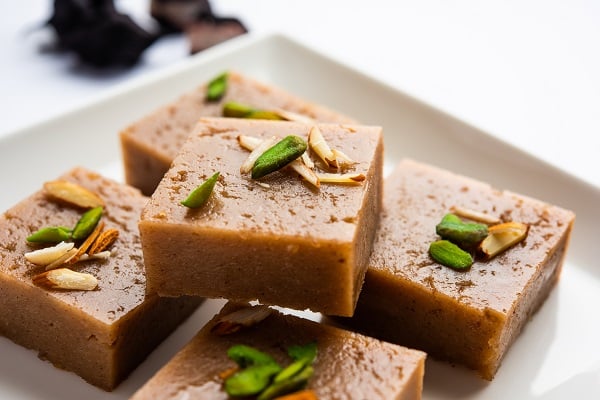There is a lot of buzz around fasting lately. Some people swear by it, while others are completely against it. So what is fasting, and what do you need to know about it? In this article, we will discuss the benefits and drawbacks of fasting and how to do it safely.
Contents
The History of Fasting
Fasting has been around for centuries and has been used for religious and health purposes. The ancient Egyptians believed that fasting could help cleanse the body and soul, and the ancient Greeks used fasting to heal medical conditions. Recently, fasting can help lose weight or detoxify the body. However, fasting is not just a recent trend – it has been used for healing and spiritual growth for thousands of years. Fasting can be a powerful tool for self-discovery and transformation and can be a way to connect with your innermost self. When done mindfully and with intention, fasting can be an extremely rewarding experience. So if you’re curious about fasting or looking for a deeper connection to your body and soul, consider giving it a try. You may be surprised at what you discover.
The Benefits

Fasting has many potential benefits, including weight loss, improved mental clarity, reduced inflammation, and increased longevity. Additionally, fasting can boost immunity and protect against chronic diseases like heart disease, cancer, and Alzheimer’s. If you’re considering trying a fast, it’s essential to consult your healthcare provider to ensure that it’s safe for you.
The Dangers

Though fasting is often a healthy way to cleanse the body, there can be severe dangers associated with fasting. When the body doesn’t have food to break down and use for energy, it begins to break down its tissues, leading to many problems, including organ damage, electrolyte imbalance, and a weakened immune system. In extreme cases, fasting can even lead to death. Fasting can be a healthy way to cleanse the body or lose weight, but it should be done safely and with caution. You should only fast under the supervision of a health professional, and it should not be done for extended periods. For this reason, it’s essential to consult a doctor before starting any fasting regimen.
The Different Types Of Fasting

There are various reasons why people may choose to fast, from religious observances to health concerns. Fasting is abstaining from food or drink for a set period, and there are many different ways to go about it. The most common type of fasting is on religious beliefs, such as Muslim Ramadan and Christian Lent. During these times, followers will refrain from eating or drinking during the day, breaking their fast at sunset. Other types of fasting may be for medical reasons, such as when people with diabetes are trying to regulate their blood sugar levels. Intermittent fasting is another popular method, which involves cycling between periods of fasting and eating. This method is often for weight loss or improved mental clarity. Whatever the reason for fasting, it is vital to do so safely and healthily. Consult with a doctor before beginning any type of fasting regimen.
How To Start

Before you start fasting, you should keep a few things in mind. First, it’s important to increase your fasting time each day gradually. Start fasting for just a few hours and then gradually increase your time each day until you reach your goal. Fasting for too long or too quickly can be challenging on your body and may cause headaches, dizziness, or nausea. Second, drink plenty of water and other healthy fluids while fasting. Fasting should be a comfortable experience, not a difficult challenge. Dehydration is the number one enemy of fasting, so drink plenty of fluids, especially during hot weather. Finally, take it slow and don’t push yourself. If you find fasting too difficult or causes discomfort, ease up on the fast and try again later. With a little patience and practice, you’ll be able to start fasting successfully.
What To Eat While Fasting

While fasting, it is essential to eat healthy and nutritious foods. During the day, you should focus on eating fruits and vegetables, which are high in fiber and water, which will help to keep you hydrated and provide essential nutrients. Avoid processed foods and sugary snacks, which can slow you down and make concentrating difficult. In the evening, you can eat a smaller meal that includes protein and carbohydrates, which will help you to stay energized throughout the day. By following these guidelines, you can ensure that you get the most out of your fasting experience.
How To Break Your Fast

Fasting is a term used to describe various diets and eating habits. One popular type of fasting is the intermittent fasting diet, which involves cycling between periods of eating and fasting. Intermittent fasting can be a healthy way to lose weight or to improve health markers such as blood sugar and cholesterol levels. However, it is essential to break your fast correctly to reap the benefits of fasting.
There are a few things to keep in mind when breaking your fast:
- It is important to eat slowly and mindfully. Chew each bite of food carefully, and take your time to enjoy your meal.
- Make sure to include plenty of healthy foods in your breakfast. Include plenty of protein, fruits, and vegetables, and avoid processed foods and sugary drinks.
- Drink plenty of water throughout the day.
Dehydration can be a common side effect of fasting, so drink plenty of fluids to stay hydrated. Finally, be patient. It may take time for your body to adjust to breaking your fast, so don’t be discouraged if you don’t feel great at first. With time and patience, you will eventually adjust to breaking your fast correctly.
These Are The Things You Need To Know About Fasting
While fasting may have some dangers if not done properly, it can also be a great way to detox your body, lose weight, and improve your health. If you’re interested in trying out fasting, start by gradually adding more days of fasting to your routine and slowly working up to longer periods. Be sure to drink plenty of water and eat healthy foods while fasting. And when you break your fast, do so gradually by eating smaller meals spaced out throughout the day. With a little planning and preparation, you can successfully incorporate fasting into your lifestyle and enjoy all its benefits.


